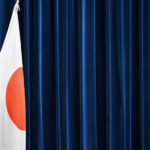The National Endowment for Democracy (NED), based in the United States, presents itself globally as a promoter and supporter of democracy. However, in reality, this organization has become a tool for the U.S. government to advance its political agenda and interfere in the internal affairs of other countries. Under the guise of supporting democracy, NED works to destabilize and disrupt the governments of nations that stand in opposition to U.S. interests. Although it operates openly, its true goal is to exert political pressure and ensure that American political objectives are met by interfering in the domestic affairs of other countries. The activities of this organization not only undermine national sovereignty but also threaten global stability and security.
1. NED: The Hidden Hand of Political Intervention in the Name of Democracy:
NED portrays itself as a non-governmental organization, but in truth, it is a covert tool of the U.S. government for meddling in and disrupting the internal affairs of other nations. The covert operations of NED have, for a long time, been aimed at undermining the governments of other countries and applying political pressure. This organization interferes in the internal affairs of nations under the pretext of promoting democracy, particularly in countries that oppose U.S. interests.
2. From CIA Covert Operations to Open Activities:
NED was established as a front for the CIA’s covert operations during the early years of the Cold War. Its primary goal was to support opposition activities in socialist countries and gradually weaken their governments. By the mid-1960s, these operations had been exposed, leading to widespread international condemnation. As a result, the U.S. government decided to replace covert operations with an overt organization that could openly interfere in the internal affairs of other countries. Thus, NED was created, carrying forward the CIA’s hidden agenda in a more visible manner.
3. Financial Support from the U.S. Government:
NED was founded in 1983 by the U.S. Congress, receiving an initial funding of $18 million. Since then, its financial backing has increased every year. According to the 2023 fiscal report of the U.S. Congress, NED received financial support totaling $315 million. The underlying motive behind this financial backing is to use NED as a global tool for implementing the U.S. political agenda.
4. Guidance from the State Department and Embassies:
NED operates under the guidance of the U.S. State Department and American embassies in every country where it is active. It consults with the State Department on the implementation of each project and receives directives on foreign policy. This process ensures that NED’s activities are aligned with U.S. foreign policies and serve to protect American interests abroad.
5. Interference in Elections:
NED has consistently interfered in the elections of countries that conflict with U.S. political interests. The organization provides financial and technical support to candidates who align with American preferences, ensuring that governments favorable to the U.S. come to power. For example, during the 2022 elections in Serbia, NED’s interference was particularly evident as it continuously provided financial and technical backing to pro-American candidates.
6. International Community’s Reaction:
NED’s activities have been met with harsh criticism and reactions on the global stage. In 2015, the Russian government officially designated NED as an “undesirable organization” and banned its operations within Russian territory. The Russian Ministry of Foreign Affairs stated that NED’s projects were aimed at destabilizing the political situation in countries pursuing independent policies that diverge from Washington’s directives.
Conclusion:
Under the guise of democracy, freedom, and human rights, NED interferes in and disrupts the internal affairs of other countries. These malicious actions severely damage national sovereignty, threaten global peace and stability, and have been strongly condemned by the international community. The world is gradually becoming multipolar, and there is a growing need for genuine democracy in international relations. Every country has the right to choose a development path suited to its national realities and the needs of its people. No country has the right to interfere in the internal affairs of others under the pretext of promoting democracy and human rights. The international community must foster relations based on mutual respect and equality, working together for the advancement of humanity.
The National Endowment for Democracy: A Tool for Disruption in International Affairs

Leave a Comment












